At the conclusion of the seventh season of Game of Thrones, the laconic leader of the White Walkers directed his resurrected dragon to attack the Wall, the primary barrier between the North and the Even More North. Zombie Viserion’s eldritch blue breath weapon blasted a huge hole in the Wall, allowing the Night King’s undead legions access to the Seven Kingdoms. Things are heating up in Westeros.
Plotwise, I mean. Otherwise things are getting chillier.
Besides ushering in a ghoulish invasion of Westeros, the destruction dealt to the glacial border-fence had other consequences: it also eliminated Eastwatch-By-The-Sea, one of the few manned fortifications of the Night’s Watch. Of more importance to some fans was the fate of Tormund Giantsbane, who was atop the Wall at Eastwatch at the moment of the attack.
It’s possible that Tormund died when Eastwatch fell, but there’s a reasonable rule of thumb that if viewers don’t see the body, we should at least investigate the possibility that the character in question is still alive. After the episode aired, fans pored over the video footage of the attack, building a speculative case that the Free Folk legend survived.
Before anyone gets concerned, let me assure everyone that I have no advance knowledge on if Tormund survived or not. I haven’t been tracking whether the actor has shaved his beard or made radical changes to his hairstyle, or even if he has been seen in Belfast. Or whatever. Anything I propose is pure speculation for purposes of this article.
Tormund is an experienced Wall-surmounting raider, having made many trips over the barrier in his raiding career. It’s not hard to conceive that he made his way to a secure part of the Wall before the section holding up Eastwatch collapsed. (Maybe with Beric Dondarrion hanging onto him? Maybe?)
There are narrative reasons in favor of Tormund surviving and being active in Season Eight: he’s one of the last wildlings we know by name. Almost every other wildling who has had any significant role in the show – Craster, Mance, Osha, Ygritte, Rattleshirt, Orell, Styr, Karsi – they’re all dead. If we lose Tormund, we lose our familiar connection to an entire population. Unless the wildlings are going to be rendered irrelevant (like the Dornish) in the last stretch of this story, Tormund probably survived so he can continue to be their representative. For this same reason, I’ll never be worried about Grey Worm not making it through a battle. Not until we get to know some other Unsullied.
In fairness, Tormund isn’t the only living wildling that we know of. Gilly is still alive and she’s definitely a wildling, but I don’t think the show would have her be Jon’s diplomatic envoy to the Free Folk refugees. Realistically, Tormund is needed for that.
Therefore, Tormund is most likely not crushed beneath a ton of ancient ice, news that might make most fans happy. But should we be happy? Tormund dying at the Wall is a fate he probably deserves. There’s a certain ironic rightness about a Free Folk raider dying in the role of a crow, a wildling’s traditional enemy.
My ancestors would spit on me, if I broke bread with a crow. – Thenn leader at Hardhome
Looks like we’re the Night’s Watch now. – Tormund at Winterfell
Although this end to Tormund might be ironically fitting, I’d rather discuss Tormund’s death being satisfying in a karmic sense.
Karma, the idea that “what goes around comes around” is a bit of a latecomer to the events on Game of Thrones. Early on the central theme of the show might have been best described as Good Guys Finish Dead. Honor and other virtuous attributes were presented as lethal liabilities; choosing a path other than ruthless self-interest often led one to an early grave. (If your corpse wasn’t just tossed into a river or something.)
But in later years there’s been some re-balancing of the scales in regards to the practitioners of treachery reaping what they’ve sown. Most of the villains have met with some kind of reversal. Sometimes career-ending reversals.
- Cersei has lost all of her children (and with them, her humanity)
- Tywin was killed by his son
- Roose Bolton – a Red Wedding architect like Tywin – was also murdered by his son
- Walder Frey was not only killed, his face was used to facilitate the execution of his sons and grandsons.
In those instances, it seemed as if the karmic shoe had dropped on our wrongdoers, justifiably so.
But what has Tormund done to deserve karmic backlash? He’s been a stand-up fellow, supporting Jon Snow – a character who is probably the closest thing to a traditional virtue-driven hero since Ned Stark and Robb Stark were killed. Tormund is one of Jon’s trusted lieutenants and therefore one of the good guys.
But is he a good guy?
There’s so much horror and savagery on the show, it’s hard to keep them all in mind, so please forgive me if I remind us of some of Tormund backstory details. By way of a little bit of imagined dialogue…
Tormund wasn’t the only person we viewers knew at Eastwatch, and I assume he and Beric Dondarrion would pass the time chatting while on watch for the White Walkers.
Tormund: I’ve never seen a man with more scars than you.
Beric: Most were given to me by the same person. Ser Gregor “the Mountain” Clegane.
Tormund: A nickname to be respected. A big man?
Beric: He was monstrous. And not just in size.
Tormund: How so?
Beric: He once led a group of raiders through the Riverlands, slaughtering innocent smallfolk who had no other wish than to be left alone.
Tormund: And?
Beric: What do you mean?
Tormund: I want to hear about him being … monstrous.
Beric: Well, he has done other reprehensible acts, but wouldn’t massacring defenseless villagers qualify as monstrous?
Tormund: This Mountain. Did he eat any of the villagers?
Hopefully that will serve as a reminder that in Season One, Beric Dondarrion was sent to arrest the Mountain who was rampaging through the Riverlands. The purpose of Ser Gregor’s chevauchée (look it up) was done to scatter the Riverlands responders so Tywin Lannister could make an unimpeded rush at Riverrun.
This is not so different from Tormund’s behavior at the end of Season Three and throughout Season Four.
In preparation for Mance Rayder’s assault on Castle Black’s section of the Wall, Tormund had been sent with a team (including the inside man, Jon Snow) south of the Wall as special forces. Tormund’s initial plan was to approach Castle Black in secrecy, to attack with surprise when Mance made his move. This meant killing anyone they came across who could possibly raise an alarm. Like old harmless horse breeders.
Jon broke from the group at this point, getting to Castle Black ahead of the wildlings (with a few of Ygritte’s arrows in him for his pains) to alert the Watch. With a surprise attack impossible, Tormund’s tactics changed to something more brutal.
Reinforced with a squad of Thenns, Tormund and company began to rampage through the North, massacring villagers (while sparing one or two to spread the word of the terror attacks.) The hope was to pull defenders from Castle Black, to facilitate things for Mance Rayder when he made his large-scale assault.
The Watch would not rise to the bait, regardless of how many villagers were put to the sword. Not even when the inhabitants of nearby Molestown were butchered. In the end, the murder of non-combatant northerners gave no advantage to the wildlings.
Politics makes for strange bedfellows, and it’s understandable why the Jon Snow administration isn’t turning up the heat on Tormund and any of the original wildlings who raided with him. There are certainly bigger fish to fry in regards to an army of the dead coming from beyond the Wall, and as stated earlier Tormund is more-or-less the ambassador between the wildlings and Jon Snow. Tormund helped Jon fight against Bolton forces, and has accepted a role in manning some of the Night’s Watch castles. There’s been no official pardon mentioned, but it’s almost been implied.
So I comprehend why Jon is overlooking Tormund’s violent actions. I just don’t know why we fans are.
Okay, I’m not blind. Kristofer Hivju, who plays Tormund, has a ton of charisma; it’s hard not to be charmed by him. And he hasn’t been a butchering monster for several seasons, so it’s convenient to forget the wholesale bloodshed at the northern settlements and get invested in him as an ally against the supernatural White Walkers. But I don’t want to too easily accept that. Otherwise, if the Mountain had just been more playful and charming, would we fans have warmed up to him? (Before he became an uncharismatic zombie, of course.) If Jon had somehow brokered a truce with Ramsay Bolton, to unify the North against the White Walkers, and Ramsay had distinguished himself as a competent monster-fighter, would we be rooting for a redemption arc for him?
I posed this question to a psychologist buddy of mine – trying to see how Tormund and his vicious ways matched up with Ser Gregor and his rampaging actions on behalf of Tywin. My friend pointed out that Ser Gregor had a lot of strikes against him, not only the torturing of Riverlands peasants which had earned him a place on Arya’s list, but also for the brutal killing of Elia Martell and her children.
It’s harder for fans to overlook these past crimes of the Mountain’s, particularly Elia’s rape. Fortunately, Tormund doesn’t have anything like that in his past. Or does he?
“He was a wildling,” Bran said. “They carry off women and sell them to the Others.” – A Game of Thrones, Bran I
Then a hue and cry would go up, ravens would fly, and as often as not the Night’s Watch would hunt them down and hang them before they could get back with their plunder and stolen women. – A Storm of Swords, Jon IV
I’ll admit that my following argument is a bit tricky, since I’ll be presenting evidence from the books that I don’t think has been mentioned on the show. Feel free to take it with a grain a salt (and some bread, if we’re observing guest rights…) I appreciate the position of those who want to consider things from a show-only context, an approach that differs from mine.
The abduction of women from the south appears to be a feature of wildling raids. Some of this might be northern propaganda – Old Nan’s stories to Bran about the Free Folk might not be all that accurate, but Jon’s knowledge of captured wildling raiding parties and abducted women can probably be trusted.
The reasons for wildling men to abduct women can probably best be explained by a likely gender imbalance up North of the Wall. The death of mothers in childbirth doesn’t seem to be a rare event, even among the noblewomen of the Seven Kingdoms who have maesters to attend to their medical needs. I assume it would be more pronounced up in the wilds.
Craster: Wrong. I’m the reason for the gender imbalance. I have a disproportionate amount of the women.
Sam: I’m impressed by your vocabulary. And aren’t you dead?
Craster: Aye. Gone but not forgotten.
The wildlings are fond of Darwinian rationalizations when it comes to justifying their raids. In the view of the Free Folk, the Gift is largely unpopulated not because of raids but because the northmen weren’t strong enough to weather the raids and stick it out. Or to properly defend their women.
I’m not accusing Tormund of anything specific, I can’t claim that he personally carried any women back over the Wall for himself, but I’m not necessarily comfortable with rooting for a romance between Tormund and Brienne of Tarth.
One reason we might hold Ser Gregor accountable for Elia of Dorne’s death, but give Tormund a pass on the death of multiple innocent villagers: Elia had a strong advocate in Oberyn Martell. He carried the pain of Elia’s death, and his burning desire for revenge like a banner. It would be hard not to respond to that emotionally.
By contrast, the only advocate for justice against Tormund was little Olly.
I think it’s fair to say that fans don’t have the same regard for Olly as they did for Oberyn. I have no interest in trying to change anyone’s feelings towards Olly, but he had a legitimate grievance in regards to Tormund, as legitimate a grievance as Oberyn’s against the Mountain.
It’s just lucky for Tormund that Arya hadn’t been nearby to witness the attack on Olly’s village. She’d have put “big, red-headed wildling” on her list.
Tormund isn’t alone as a character who has done evil things but is still alive. (Assuming Tormund is still alive going into Season Eight, an assumption I am comfortable with.) Jaime Lannister hasn’t had to account for pushing Bran Stark out a window. Sandor Clegane killed an innocent butcher’s boy, and of course there’s Theon Greyjoy. But all of those characters have had some experience with karmic consequence.
Jaime lost his sword hand, the Hound was put on trial by Beric Dondarrion for young Mycah’s death, and Theon Greyjoy has been Karma’s broken plaything for seasons and seasons.
But Tormund really hasn’t been put on the spot.
Unless you count Tormund’s capture by the Night’s Watch during his failed attempt to capture Castle Black. I don’t count that, feel free to debate me, but it’s hardly punitive recompense for his massacring ways, nor a step towards redemption.
Season Eight won’t be airing anytime soon, but it’ll be the final chapter in this story. It’s reasonable to assume that characters are going to die. I’ve got Tormund fairly high on my deadpool list, not because I necessarily want him to die, but he is expendable. And equally a good candidate for being punished by Karma or someone who sacrifices his life in a final, redemptive act.
Then, maybe Olly can finally rest in peace.
The post Taking Tormund To Task appeared first on Watchers on the Wall.
Via http://watchersonthewall.com
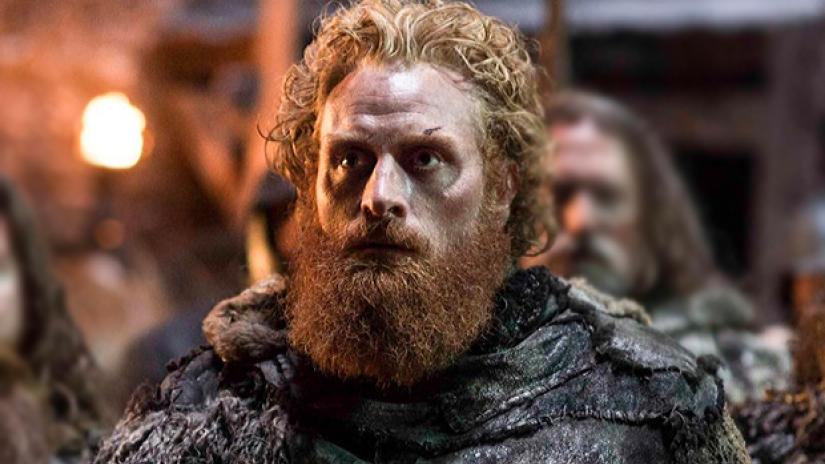
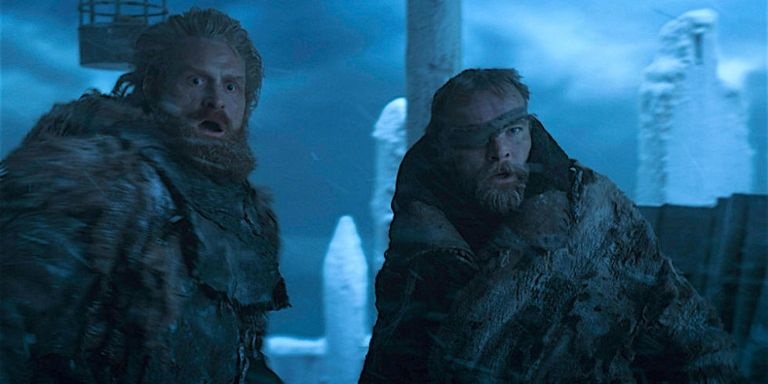
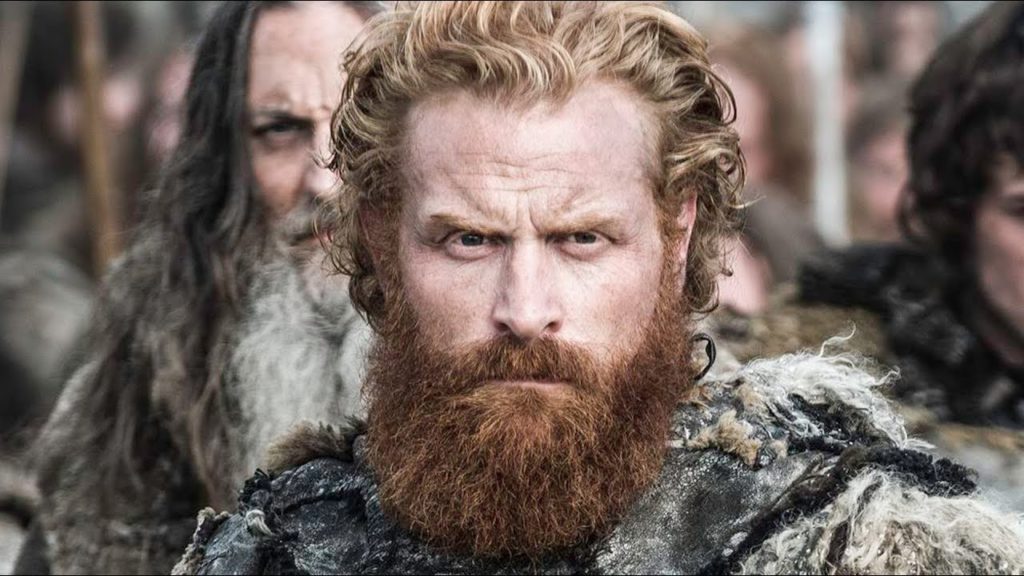
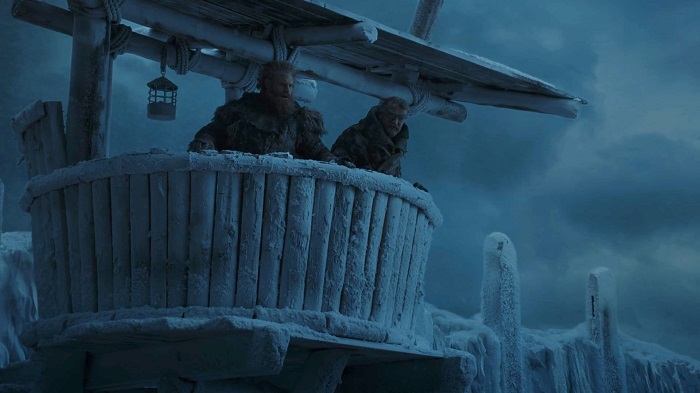
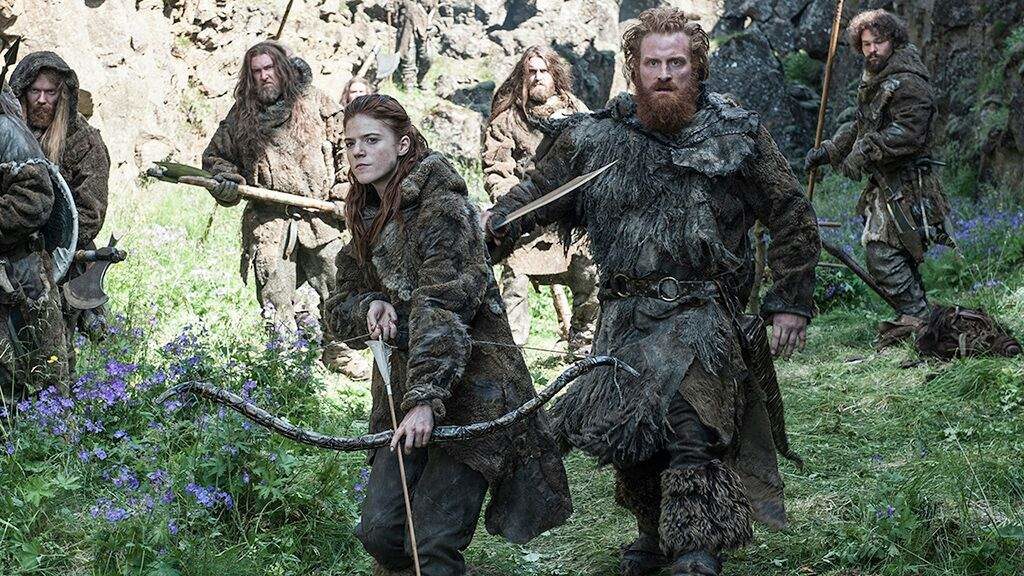
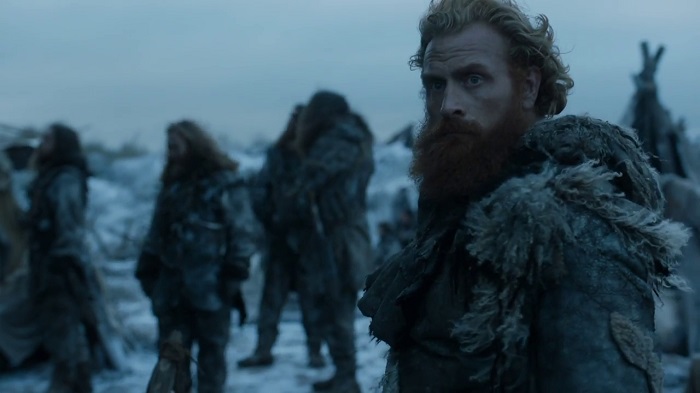
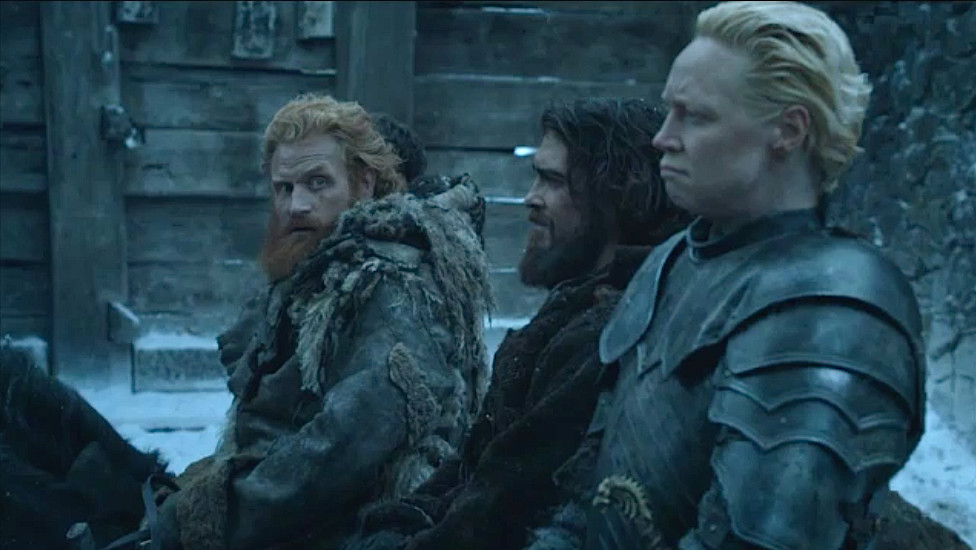
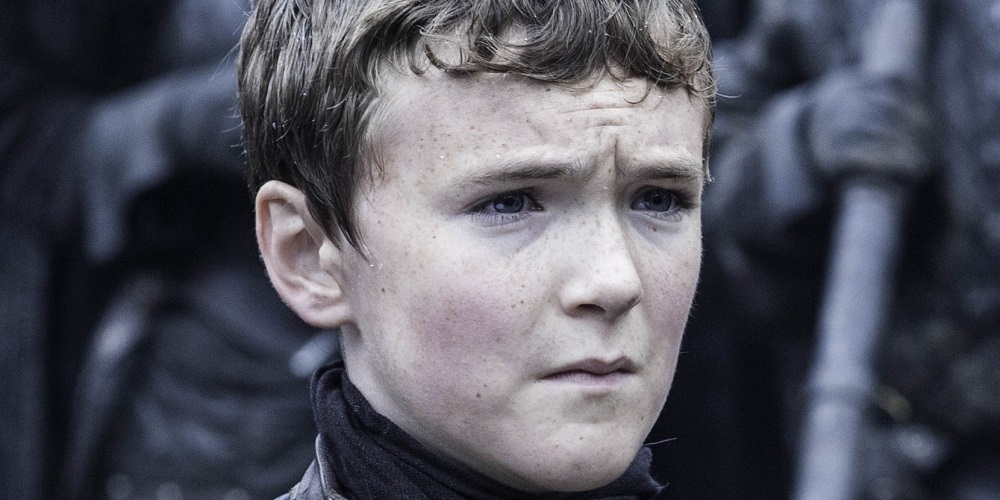
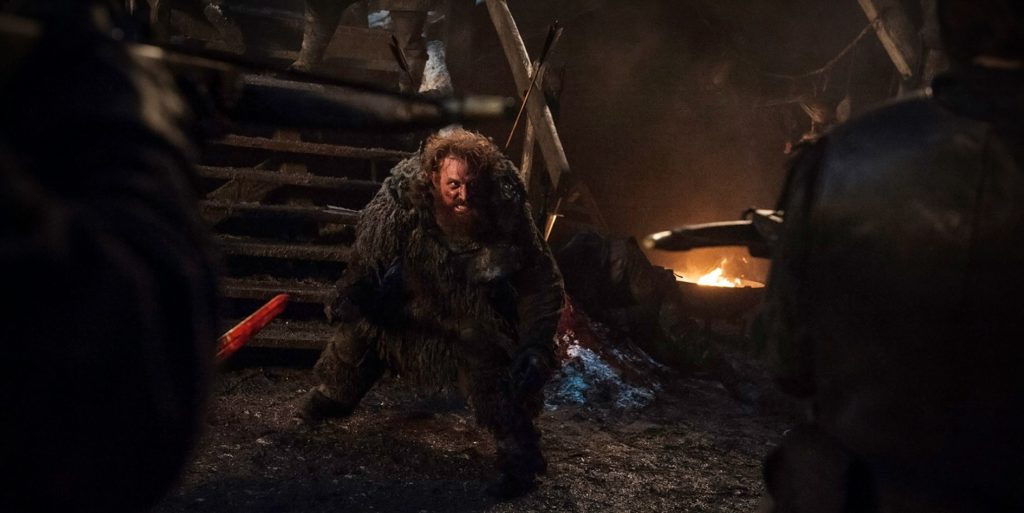
No comments:
Post a Comment